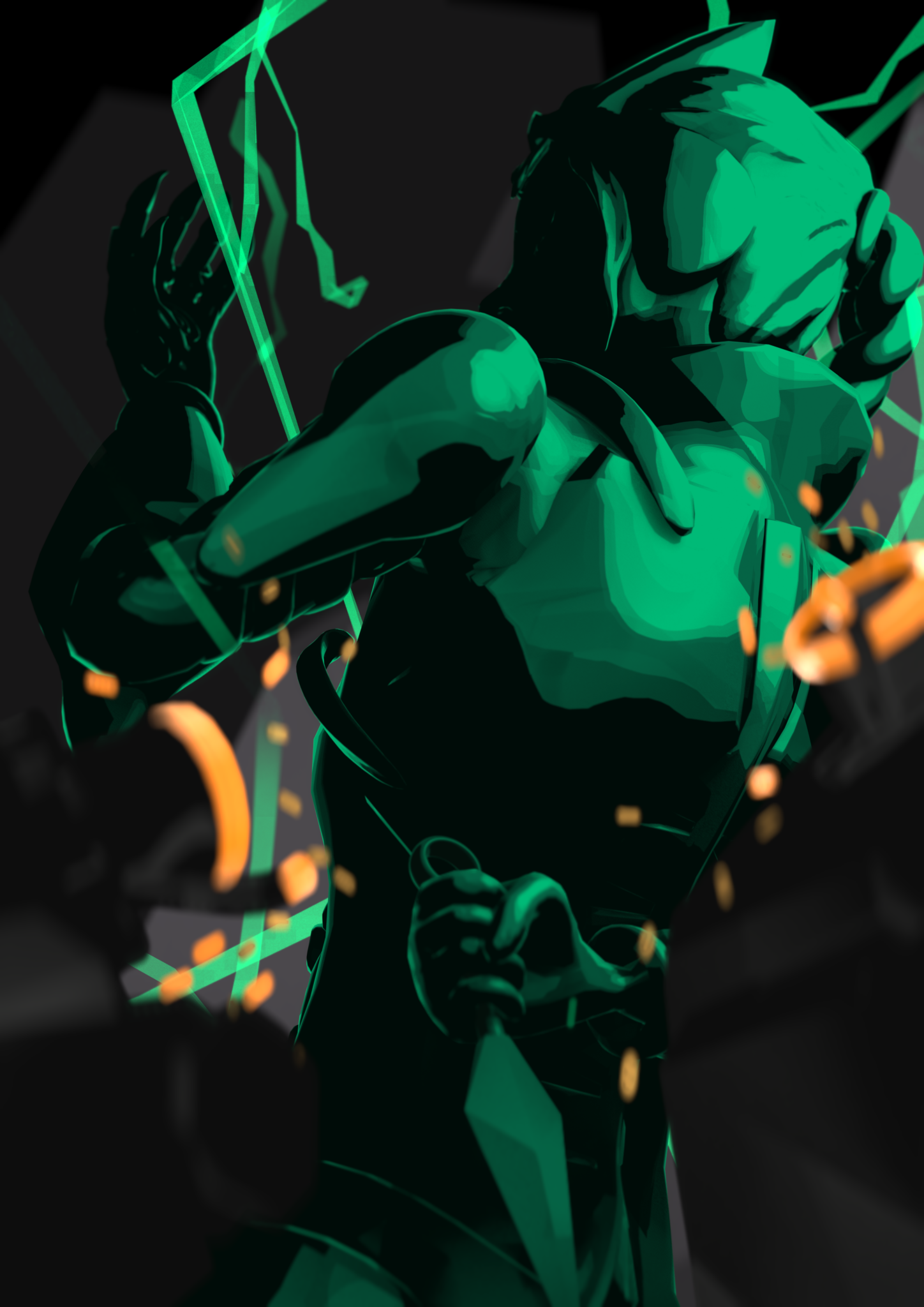
StopMotion
Things I've learned and improved upon:
- System Design
- Level Design
- Mechanic Design
- Combat Design
- Enemy Design
- Unreal Engine 5
- Prototyping
StopMotion was a Fast Paced Action game similar to Ghostrunner, with the unique twist that the player could stop time for a short while. I cancelled this game now, since I want to dive deeper into other subjects and genres while not limiting myself to this game.
My goal for this game was to create something where I could fail as much as possible, I wanted to experience pitfalls and mistakes that most Game Designers eventually have. This way I could build up a lot of experience and learn to avoid common design mistakes. So instead of telling you what I learned, I thought I’d be a fun idea to tell you what went wrong at every prototype. Think of this as a bloopers document and a way to show my painful lessons. Don’t worry, I can take it ;).
Prototype 1 – April 2023
Main Mistakes: Insufficient knowledge of engine and no clear gameplay direction.
Back then I just started out, I didn’t know the engine very well. This led me to create code that wasn’t future proof and hard to back track. Granted I was very new and super excited to get started. I do not regret working on it, I just have more knowledge on how to handle these things nowadays :). Now I would first get a better grip of my tools to see what I can do with them.
I also lacked a good direction for the gameplay, this led me to add any idea that popped up in my head or I saw somewhere else. Now I’m more focused on what direction I want to take the game in.
Prototype 2 – September 2023
Main Mistakes: Difficulty and Gimmick mechanics
The difficulty for this prototype was way too high, because I was the developer I played the game a thousand times, and it was easy to forget that playtesters didn’t. Now I know that I am not the player and misplaced difficulty can ruin a playtest.
The mechanics were a bit gimmicky. I wanted to have three time related mechanics, this led me to creating them because I wanted to rather than the game needing them. The mechanics do not complement each other as well, making them feel like standalone gimmicks rather than integral game mechanics. Now I know how to craft more integrated mechanics for games to use, as seen in my blog posts.
Prototype 3 – October 2023
Main Mistakes: Incoherent Mechanics and Difficulty (again)
Incoherent mechanics in this case mean that the mechanics aren’t intuitive and have weird side effects. I wanted to make Time Stop more useful from Prototype 2, so I created an extra effect that would increase your speed if you moved fast in Time Stop and an extra jump. This was confusing and didn’t make a lot of sense. Now I know I can make a mechanic more interesting in different ways, rather than increasing the complexity. Like using the environment, or challenging the player on how they use it rather than giving them more for using it.
Prototype 4 – December 2023
For this Prototype I lacked focus of what I wanted the gameplay to look like. I evolved to a part where I had a more clear grasp creating on mechanics themselves, what was lacking was my ability to create a coherent web of mechanics that would feel satisfying and rewarding. Now I have a better grasp of connecting mechanics together to create more coherent gameplay.
The mechanics felt a bit too complex for someone starting out. The players would start out immediately with this complete kit of mechanics. This made the game hard to get into, and combined with punishing level design resulted in an unpleasant experience for play testers. Now I know how to gradually guide players into the a game.
Prototype 5 – November 2024
This was by far the main issue and my reasoning to move to other projects, the game felt like something that had been done before. This demotivated me to work on it, and inspired me to become more innovative and critical. Now I know the importance of being innovative and critical on my work, this makes or breaks a game.
Conclusion
Overall, a lot went wrong but that was kind of the point for this project. I got so much key experience from it that I feel way more confident in my abilities. A lot of things went right as well, like my ability to learn and adapt shines through the prototypes. I feel motivated to work on new innovative games that challenge the established rules!